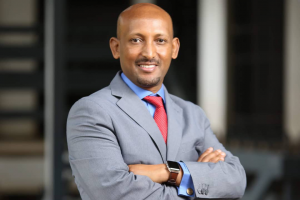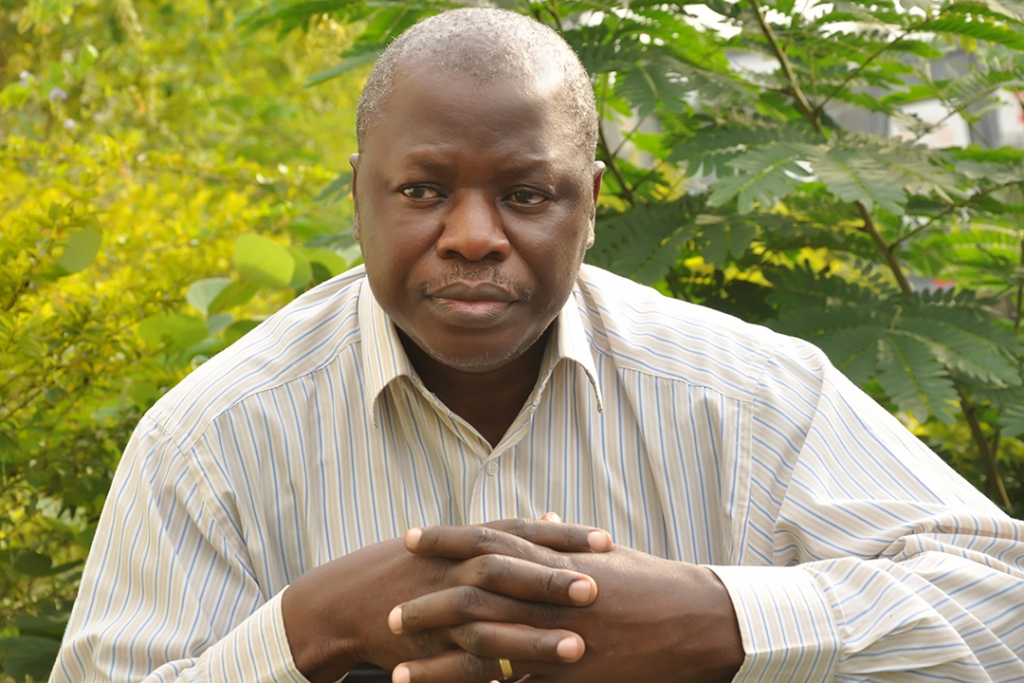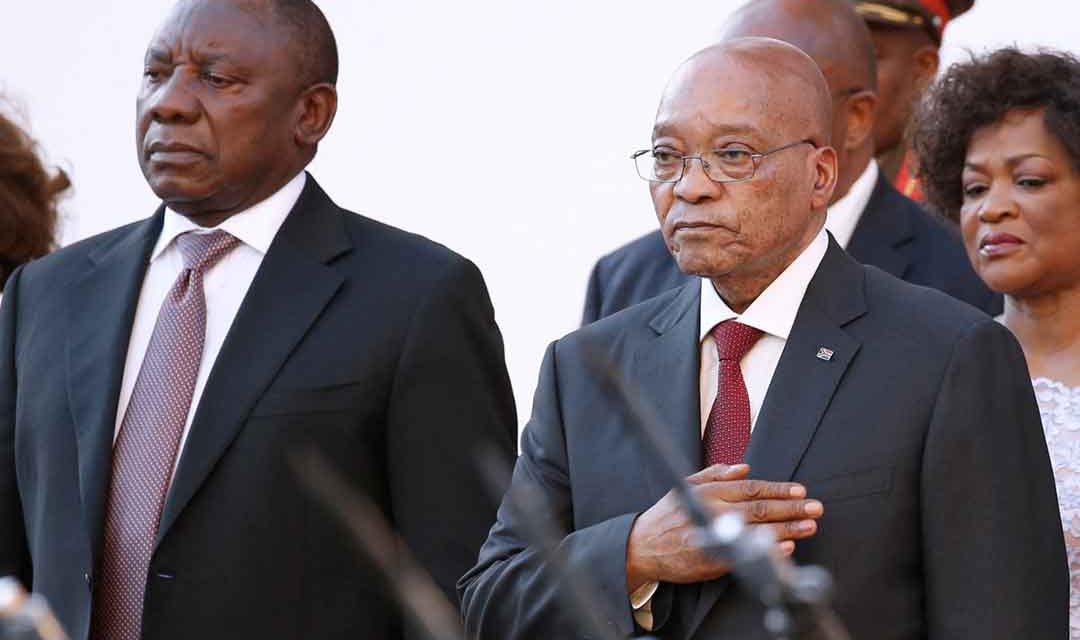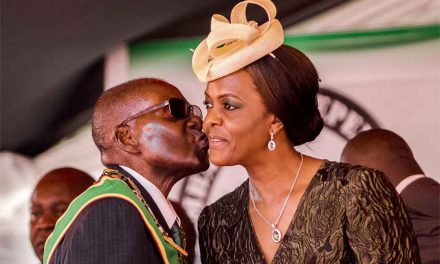African leadership: the golden age
The continent’s current crop of leaders is more acquiescent than their post-colonial predecessors in dealing with external attempts at unwarranted interference
Former Nigerian military leader Yakubu Gowon had a telling exchange with US President Richard Nixon in 1971. Invited for a state visit, Gowon, according to a recently declassified American diplomatic cable, said he was too busy administering his country. The army general promised Nixon he would consider a possible future visit – but never did. Gowon never visited the US during his nine-year tenure and is the only Nigerian leader not to have done so. When, shortly after his election in 2015, President Muhammadu Buhari flew out to meet President Barack Obama even before he had named a cabinet, the Nigerian media did not miss the opportunity to draw a contrast. The Lagos-based newspaper Premium Times lamented the country’s foregone “golden era” of diplomacy. It supported this position with another revelation from declassified US cables.
This time the revelations concerned how, in an effort to protect farmers, Nigeria’s President Shehu Shagari resisted President Jimmy Carter’s bid to sell American rice in Nigeria. The idea of an African leader rebuffing a superpower in defence of his compatriots excites advocates of truly independent African leadership. If nothing else, it is strikingly at variance with the more acquiescent mood of the continent’s current leaders, who these days may require a US or EU visit to validate their mandates. At a time of a renewed scramble for Africa, such diplomatic encounters have triggered questions about Africa’s continued ability to check unwarranted external influence. More importantly, they have led some to ask whether Africa’s era of people-oriented leadership ended shortly after the colonial period. Both questions arise in the context of celebrated leadership figures such as Patrice Lumumba, Kwame Nkrumah, Julius Nyerere, Amilcar Cabral, Nelson Mandela, and Thomas Sankara.
“African leadership has changed over the years,” says John Magbadelo, lead director at the Abuja-based Centre for African and Asian Studies. “African leaders [who] emerged from the independence struggles through which they wrenched power from colonial administrations were different in several respects from their military and civilian successors.” In 1969, Africa had just three leaders whose power was based on multiparty elections; by 2018 that number had grown to 43. Within the same period, the number of those who gained power in single-party systems fell from 11 to zero. The number of leaders who came to power through coups d’état also dropped from eight to zero, according to the Brookings Institution’s African Leadership Transitions Tracker. Despite apparent democratic advances, the continent remains beset by leadership problems, mirrored by conflicts, corruption and woeful performance on all key economic and life indicators.

Former lead member of the African Union High- Level Advisory Group Mehari Maru
Africa’s foreign policy has also become less assertive. Acknowledging the leadership problem, the organisers of the $5 million annual Mo Ibrahim Prize – the continent’s most prestigious award for former heads of state – said they had found no worthy recipient for six years between 2007 and 2017. Many analysts argue that Africa’s leadership problem has lingered for decades, since the pre- and earlier post-independence era, which they see as the continent’s golden age of people-oriented leadership. That period saw leaders confront colonialists, win independence and lead their fledgling nations to early political and economic progress. “The current [generation of] democratic African leaders are spineless because the situation in much of the continent has gone from bad to worse over the years,” Magbadelo told Africa in Fact. “African youths are braving the Mediterranean Sea [each year] in a futile search for greener pastures in Europe because they cannot see any hope for survival in their countries.”
So, how much has African leadership changed over the decades, and how were past leaders able to do better, while warding off unwarranted external influence? Historically, Africa’s leadership problem almost certainly predates the colonial era. In a 2016 paper, “Traditional Leadership and Corruption in Pre-Colonial Africa: How the Past Affects the Present”, Benson Igboin describes corruption during a time when African kings reigned with unlimited powers, and were regarded as God’s representatives. The lack of accountability allowed bad governance to fester, and chiefs were seldom called to account for their stewardship of their kingdoms’ resources. In recent history, the first factor that enabled a more assertive leadership was political. Mehari Maru, a scholar on African governance and former lead member of the African Union High-Level Advisory Group, traces three political phases since the independence era.
These are: the pan-African solidarity era, during which leaders mainly mobilised for the anti-colonial and anti-apartheid struggle; the confusion and division era, when the cold war between the US and USSR led to ideological struggle between supporters of the west and the east; and the period of intervention and integration. The first era, which produced heavyweights like Kwame Nkrumah (Ghana), Jomo Kenyatta (Kenya) and Julius Nyerere (Tanzania), was also the most people-oriented. Many leaders in this category asserted the foreign policies of their newly liberated countries in defence of their people. According to Maru, the next era, signposted by the cold war, saw the rise of undemocratic political groups, dictatorial governance styles and bloody political changes through military coups.
It produced dictators such as Muammar Gaddafi, Mengistu Haile Mariam, Houari Boumédienne, Said Barre and Mobutu Sese Seko, who were feared at home and also proved tough for the western world and the eastern bloc. “In a sense, the courage that the military rulers projected onto the global stage was a defence mechanism to assuage their feelings of guilt for displacing democratically elected administrations,” Magbadelo told Africa in Fact. That “courage” faded after the collapse of the Soviet Union, with the US becoming the world leader. The third leadership era was born under US pressure for political and economic reforms in Africa, which resulted in the rise of civilian leaders. Africa also ceased to be a proxy for either the West or the East, but that neutrality cost Africa its influence. There were signs of deference to the US for the role it had played in the implementation of governance reforms in Africa.
Moreover, most African countries came under structural adjustment programmes facilitated by the World Bank and the International Monetary Fund (IMF) – western-inspired institutions that shaped the global economy in the second half of the 20th century. “Africa lost its voice,” says Emmanuel Akyeampong, professor of history at Harvard University’s Centre for African Studies. “With only one game in town, African political parties no longer fought over ideology or foreign policy, but over who could better implement structural adjustment and be more loyal to the United States.” It was Africa’s initial lack of relationship with these economic institutions that was the second factor – besides politics – that enabled independence-era leaders to be more assertive and people-centred. The Bretton Woods Institutions – including what would later become the World Trade Organization – were all new organisations in the 1950s and 1960s.
This allowed African leaders, in the first two decades of independence, more autonomy in defining their paths of economic development and governance, according to Akyeampong. But everything changed after 1989, with the collapse of the Soviet Union. Today’s African leaders are not necessarily weaker than their post-independence predecessors, says Yolanda Spies, a senior research fellow of African diplomacy and foreign policy at the University of Johannesburg. The open defiance of western powers in particular shown by some past leaders was not always an indication of their diplomatic strength, because the cold war afforded many of them opportunities to double-deal with both east and west. Even so, the US cables also show that some African leaders snubbed the imperialist west because they were loyal to the opposite side of the ideological divide.
Another factor in perceptions of these former leaders, Spies argues, was the limited media scrutiny that existed in those decades. This may also have been an advantage, since very little was known about leaders’ public and private lives. “We live in an era of unprecedented media scrutiny. If we had had the kind of 24/7 scrutiny of leaders then, as we have now, we would not romanticise them as much,” Spies told Africa in Fact. Yet, while the political and economic contexts of each of the leadership eras may differ, Akyeampong argues that few leaders in modern Africa have the integrity of their predecessors. To put it another way, if a country’s corruption index reflects the integrity level of its leaders, the results today are not impressive. On average, half of the 20 countries in the world with the highest perceived levels of corruption in the past decade are in Africa, according to Transparency International. “Integrity has become a rare quality in African politics today,” Akyeampong says.
“The first generation of African leaders was patriotic: shaped in the crucible of colonial rule, they wanted better for their new nation states.” Akyeampong recalls a 2018 visit to the widow of Ahmed Sékou Touré, Guinea’s first head of state from 1958 to 1984: she was living in the only home she and her husband ever had in the capital, Conakry. It was also the house where Nkrumah, Ghana’s first head of state, had lived after he was deposed in 1966, until his death in 1972. Touré was notable for leading Guinea to vote “no” in a continent-wide 1958 referendum on whether former French colonies should join the new Francophone community that was being proposed at the time. He demanded outright independence. “The leaders of the first generation were of a different ilk,” says Akyeampong. Former US President John F Kennedy rejected the “socialist” and “communist” labels that were commonly attached to African leaders like Touré, he adds.
“He decided that they were ‘patriotic nationalists’, and what the United States needed to do was to assist them with economic development, [because] these leaders valued the prosperity of their countries over ideology.” With new powers like China challenging the US for dominance in Africa, there are still bright spots of good leadership on the continent, notes Spies. Rwanda’s Paul Kagame continues to be a reference point, as is Botswana’s former president, Ian Khama. Ethiopia’s new prime minister, Abiy Ahmed, helped to end the 20-year war with his country’s neighbour, Eritrea, shortly after taking office, and recently helped to end the standoff between Sudanese security forces and pro-democracy protesters. Meanwhile, more African countries are becoming democratic, and the number of opposition wins is growing and more incumbents are conceding defeat. “That is leadership,” Spies says.
“We saw very little of that in Africa until very recently. It sends a powerful diplomatic message – that leaders value their people, and that they value their institutions.” But more needs to be done with regard to Africa’s foreign policy, says Maru. Kagame is making some effort to assert African autonomy, but his stance is not usual among contemporary African leaders. Perhaps this is because there are considerable challenges in developing a coherent continental approach to foreign relations. In Maru’s view, what is needed is “a pan-African level leadership that could withstand unwarranted interferences from external forces, including the US, China, Russia, the UAE, Saudi Arabia, and Turkey.” But there are considerable challenges in developing a coherent continental approach to foreign relations. The African Union (AU), formed in 1999 with the goal of forging a common front in global affairs while pushing for Africa’s development, has yet to provide such a coherent approach.
First, the AU has no clear foreign policy guiding its dealings with other continents and big countries – unlike the US, China and the EU, which have policies on Africa. Its structure is also seen as too centralised and weak to support effective policy implementation internally to Africa, let alone as regards foreign policy. The regional histories of north, Francophone and Anglophone Africa bring with them different ties with different parts of the world. Also, Africa’s underwhelming economic position, despite its vast natural resources, continues to make it vulnerable in external negotiations. Then there is the complex problem of how ties – in some cases, cultural and religious – between AU member nations and foreign countries sometimes hinder efforts at achieving joint decisions. A recent example is Sudan where military rulers relying on support from Saudi Arabia, the UAE and Egypt, held onto power despite the AU’s warnings and its suspension of the north-east African country.
After the removal of long-time ruler Omar al-Bashir on 11 April this year, the AU initially demanded the restoration of civilian rule within 15 days. Sudan’s military leaders later received a 60-day extension, thanks to Egypt’s President Abdel Fattah al-Sisi, who, as the AU’s current president, rallied a few leaders to support the effort. The AU finally suspended Sudan after 3 June, when the security forces killed scores of protesters and wounded many more. Sisi reportedly tried to block the decision. Sudan has for years relied on its Arab allies for support, especially since losing most of its oil revenues to newly independent South Sudan in 2011. This year, amid the political turmoil, Saudi Arabia and the UAE sent in half a billion dollars in aid and promised another $2.5 billion, handing a critical lifeline to the country’s military rulers. Africa requires partnerships, not subservience, to succeed, says Magbadelo.
Ultimately, its development will depend on quality leadership and on Africans. “Africa’s vision to attain development does not need the concurrence of any superpower, but the determination of its leadership to implement policies that would institutionalise structures that harmonise and utilise the creativity and productivity of African people for the overall development of the continent,” he says.

Lead director at the Abuja-based Centre for African and Asian Studies John Magbadelo










